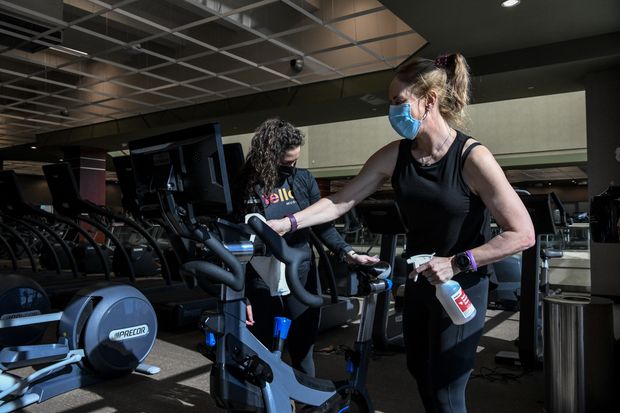1 gym franchisee intends to start a dozen new places, though a national series is promoting electronic memberships.
America’s fitness centers are reopening into a markedly changed gym as coronavirus pandemic limits elevator. Each company –and its customers–have to determine how to navigate fresh workout habits and contradictory demands around Covid-19 security protocols.
Some individuals will not exercise at a face covering; others may just frequent a gym using a mask mandate. Others bought pricey physical fitness machines for their houses and have spent taking virtual courses.
The gym chain, together with 150 U.S. places, now provides a $15 yearly digital membership, where people are able to work outside to streaming courses.
Gyms, from boutique studios into sprawling fitness facilities, have been one of the sectors hardest hit from the public-health catastrophe, as worries about individuals spreading the coronavirus during class workout directed to mandated shutdowns and manhood exoduses.
The pandemic’s cost was profound: Almost half the 3 million jobs at U.S. health clubs vanished this past year and over half of their industry’s earnings.
People who survived are catering to a client base today more used to exercising in the home and much better equipped to do so. As health spas faltered, industry boomed for businesses like Peloton Interactive Inc. and Nautilus Inc. offering streaming courses and exercise gear. Demand was high for Peloton exercise bicycles and treadmills that clients have waited months for deliveries.
“I understand there is chatter of,’We’re a stay-at-home inventory, and we return to normal and Peloton expires or anything,'” John Foley, Peloton co-founder and chief executive, told investors at February. “We clearly are taking another side of this. Each year from the U.S., there has been 5 million treadmills offered. So it is nothing like exercising in the home was a Covid thing. It has ever been something. It is only the goods are dopey and not linked.”
Fitness owners and business experts say the fitness landscape is probably permanently changed from the pandemic. After the Covid-19 hazard passes, they state, the work of fitness will become a mashup of bricks-and-mortar and online digital offerings, similar to the coronavirus-hastened growth of retail, office work and schooling.
“At-home will get part of the fitness ecosystem, it is likely to have a oversized platform,” said BMO analyst Simeon Siegel. “However, for the great majority of individuals, the fitness sector will still revolve round bricks-and-mortar.”
In the end of 2020, the business has dropped $20.4 billion in earnings, while roughly 6,400 clubs–17 percent of the overall –closed indefinitely.
A recent survey by consulting firm McKinsey & Co. found that 68 percent of people who began using an internet physical fitness program throughout the pandemic stated they intended to last for the long run.
